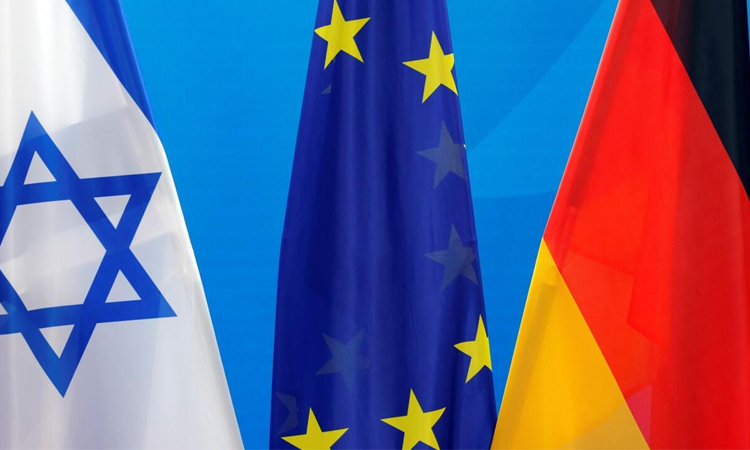News Flash

BERLIN, May 12, 2025 (BSS/AFP) - Israeli President Issac Herzog will visit Germany on Monday to mark 60 years of relations with the country that perpetrated the Holocaust, at a time when ties are complicated by the Gaza war.
His German counterpart Frank-Walter Steinmeier will then visit Israel with Herzog, to emphasise Germany's historic responsibility as one of its staunchest supporters.
Together with their wives, they will tour Israel for two days to highlight a friendship that a grateful Berlin often labels "a miracle" and meet young people, politicians and kibbutz residents.
But while Berlin, now led by conservative Chancellor Friedrich Merz, says support for Israel remains a core principle, relations have come under strain in recent years.
Israel's devastating war in Gaza prompted by the October 7, 2023 attack by Hamas has sparked charges from many countries and rights groups that its response has been disproportionate.
The International Criminal Court last year issued warrants for alleged war crimes for Israeli Prime Minister Benjamin Netanyahu and others including Hamas military chief Mohammed Deif.
Germany meanwhile has seen the surge of the far-right Alternative for Germany (AfD) party, whose leading figures have questioned the country's "remembrance culture" to atone for Nazi crimes.
Bjoern Hoecke, a key figure of the party that won a record 20 percent in February elections, has labelled Berlin's Holocaust remembrance site for six million murdered Jews a "memorial of shame".
Germany has also voiced deep concern about a rise in anti-Semitism, be it from the far right, the far left or immigrants from Arab and Muslim countries.
In this broad context, "the usual platitudes... no longer convince", former Israeli ambassador Shimon Stein argued in an article for German news weekly Die Zeit co-written with Hebrew University professor Moshe Zimmermann.
"Sixty years of German-Israeli relations -- we are entering a completely new chapter."
Israeli Ambassador Ron Prosor, speaking to AFP, said that Germany remained "Israel's most important ally in Europe" and that the two countries are now bound by "a true friendship".
"Even if things sometimes get tough, it always remains a fair and friendly relationship."
- Dampened joy -
As the Gaza war has drawn much international condemnation, Germany has been at pains to carefully calibrate its response.
Last Tuesday, the day he took power, Merz said "Israel has the right to defend itself against the brutal attack by Hamas terrorists on October 7 and everything that followed".
"But Israel must also remain a country that lives up to its humanitarian obligations, especially as this terrible war is raging in the Gaza Strip, where this confrontation with Hamas terrorists is necessarily taking place," he said.
Germany's new top diplomat Johann Wadephul, who visited Israel on Sunday, called for "serious discussions for a ceasefire" in Gaza, where the humanitarian situation "is now unbearable".
The 60th anniversary falls at a time "in which a mood of joy and celebration isn't exactly apparent," one of Steinmeier's advisors told AFP.
"How could it be?... We view the suffering of the civilian population in the Gaza Strip with the greatest concern."
Since World War II, Germany has paid reparations to Israel and the two countries have built close defence ties, with Israel buying German submarines and Berlin purchasing Israeli air defence systems.
But Stein and Zimmermann argued that nurturing close ties had increasingly become an "elite project" in Germany.
News weekly Der Spiegel said a Bertelsmann Foundation survey found that only 36 percent of Germans surveyed said they had a "very or fairly good opinion" of Israel, a slide of 10 points from 2021.
During his Israel visit, Steinmeier is also expected to meet with Netanyahu.
Merz, before his inauguration, suggested he was open to a Netanyahu visit to Germany, despite the ICC arrest warrant.
This would present Germany with a dilemma, a former president of Germany's Constitutional Court, Andreas Vosskuhle, told the Handelsblatt daily.
"Normally, he would have to be arrested," Vosskuhle said, adding that "it should be obvious that the Germans, given their own history, are reluctant to arrest the Israeli prime minister".
"I therefore hope that Netanyahu will be wise enough not to come here and spare himself and us this situation."